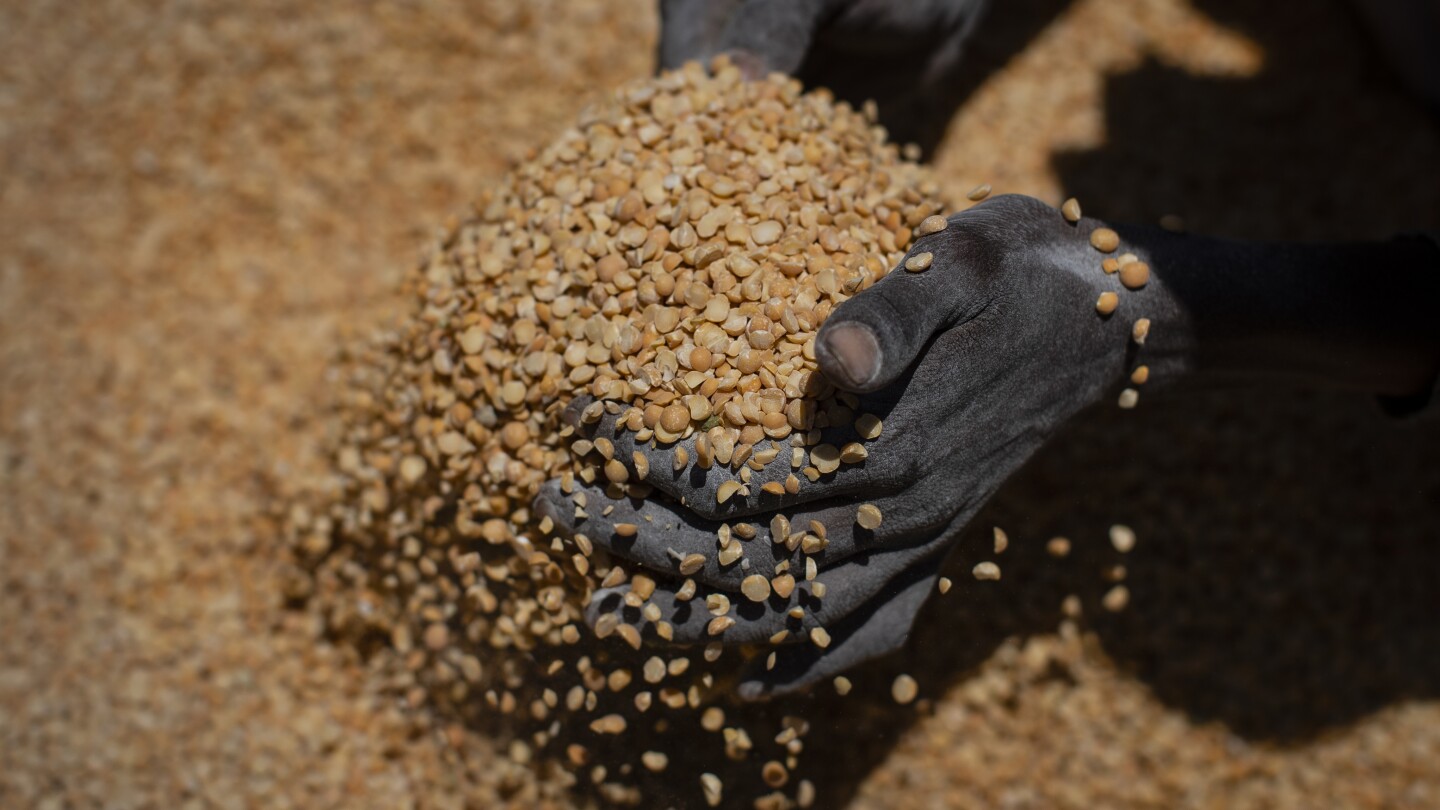The U.N.’s World Food Program says it aims to reach up to 3 million Ethiopians affected by climate change and conflict in the coming weeks, half the number it supported in the East African country before the agency introduced a lengthy aid suspension last year.
WFP said it “is now working at pace to deliver food assistance to up to 3 million” in Ethiopia’s Tigray, Afar, Amhara and Somali regions. The agency “is extremely concerned about the deteriorating food security in Northern Ethiopia – where many are already facing severe hunger,” Chris Nikoi, its Ethiopia head, said in a statement issued Tuesday.
The United Nations and the United States halted food aid for the Tigray region in March 2023 because of a massive scheme by Ethiopian officials to steal humanitarian grain. The pause was extended to the rest of the country in June after the diversions were found to have occurred nationwide.
The U.S. and the U.N. later resumed food deliveries but on a small scale.
Before the suspension, the WFP helped feed 6 million Ethiopians. It now plans to reach 40% of the 7.2 million people who face acute food insecurity and only “if resources are available.” The rest will be reached by the government and other aid agencies, the agency said.
The WFP is grappling with a worldwide funding shortage at a time when needs are soaring. The agency said it has “limited food stocks” in Ethiopia and urgently needs $142 million for its operations. Without those funds the agency will be forced to stop food distributions for nearly 1 million foreign refugees in April, it said.
Ethiopia is gripped by drought and multiple internal conflicts that have resulted in millions going hungry.
Last week, The Associated Press reported that aid has been slow to reach those who need it following the lifting of the suspension. Of 3.2 million people targeted for food assistance by U.N. agencies and nongovernmental organizations in Tigray last month, only 14% had received any by Jan. 21.
Ethiopia’s federal ombudsman has confirmed hundreds of recent starvation deaths in Tigray, where local authorities have warned of an “unfolding famine.”
The U.S.-funded early warning system for Ethiopia says drought will likely tip parts of the country’s south into severe and catastrophic levels of hunger between now and May.
Ethiopia’s government insists it is handling the crisis. Prime Minister Abiy Ahmed told lawmakers on Tuesday “there have been no reported deaths attributed to starvation so far” in Tigray and said aid had been dispatched to feed hungry people.
A U.N. panel previously accused his government of using hunger as a weapon against Tigray during a two-year-long civil war with the region’s forces that ended in November 2022. Ethiopian authorities denied the allegation.
The U.N.’s Food and Agriculture Organization bestowed its highest award on Abiy last month for efforts to achieve food security, citing an initiative by the prime minister to boost Ethiopia’s wheat production. Human Rights Watch criticized the honor. saying it “ignores wartime abuses” by Ethiopian and allied troops who “pillaged and attacked food systems.”`

